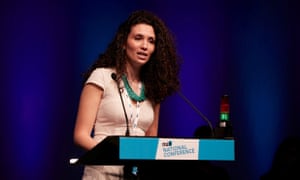
The furore around Malia Bouattia’s election as the new president of the National Union of Students has yet to die down. Accusations of antisemitism dogged her campaign and continue to do so, with Cambridge University’s union threatening to disaffiliate from the NUS altogether. Bouattia’s defence of her comments are, broadly, that it is Zionism she takes issue with and not Jews. And it is for this reason that she felt the need to describe the University of Birmingham in a blogpost as “something of a Zionist outpost”, followed by the comment that “it also has the largest Jewish Society in the country, whose leadership is dominated by Zionist activists”.
The idea that the reason there has been a backlash against these comments is because, as one Guardian writer put it, “Muslims come in for special attention when seeking a public role”, is simply wrong. At no point in an open letter signed by 50 Jewish society presidents asking Bouattia to clarify her comments was her faith mentioned. The notion that it is just an exaggerated response to some badly chosen words, because Bouattia is a Muslim, is an excuse to brush under the carpet serious concerns that Jewish students are airing – including studentscampaigning to end occupation and promote Palestinian rights. Bouattia says she has a problem with “Zionist politics”. Zionism, at its core, is the belief in the right of the state of Israel to exist. Whether Bouattia likes it or not, connection to Israel is a key part of Jewish identity for an overwhelming majority of Jews in 21st-century Britain. In nearly every synagogue around the world, on Shabbat and major festivals, Jews pray for the safety of the state of Israel. The latest research on British Jewish attitudes towards Israel reports that 93% say Israel forms part of their Jewish identity.
If Bouattia was really serious about engaging with Jewish students she would know that, within the same 90%-plus of Jews who feel connected to Israel as part of their identity, a significant number are not supporters of the current policies of the Israeli government when it comes to the peace process or expansion of settlements. And nowhere does this apply more than to students and younger members of the Jewish community, who are increasingly outspoken on these issues.
Bouattia says she is concerned about liberty, equality and inclusion – but very few Jewish students will feel included in a National Union of Students built in the image of its new president.
No comments:
Post a Comment